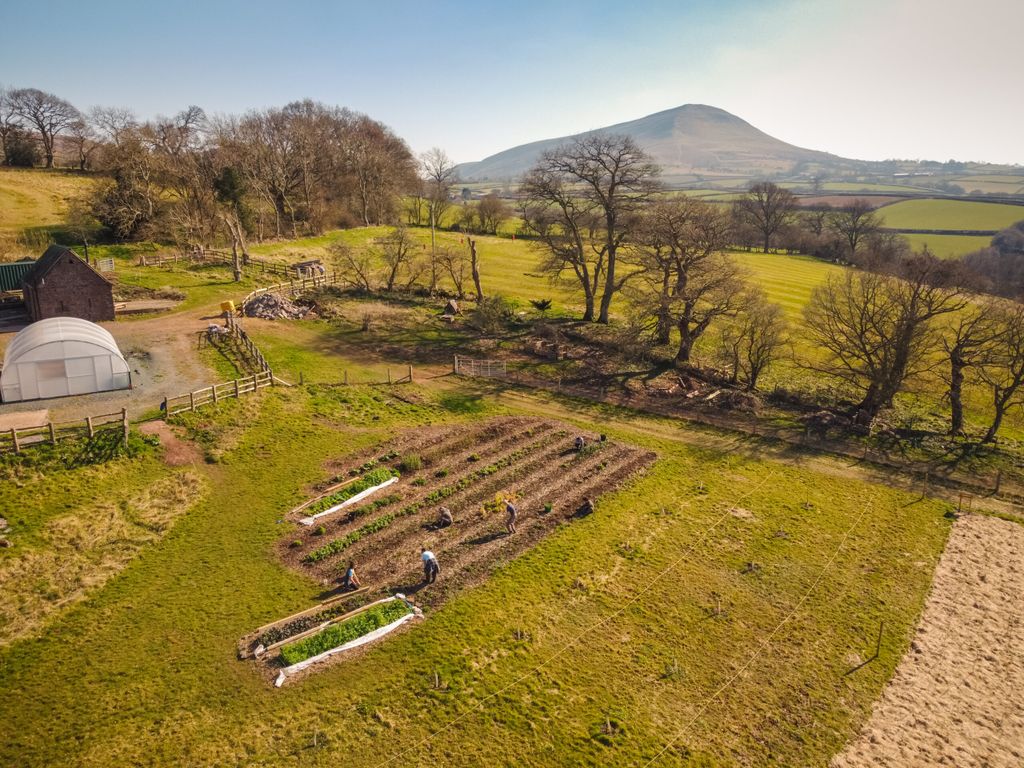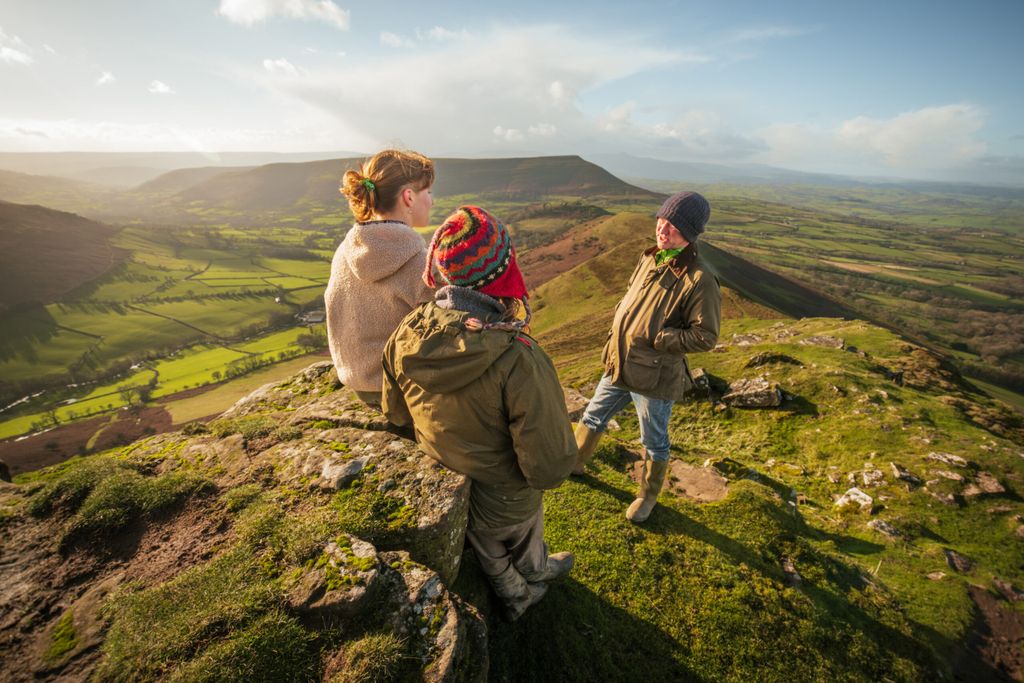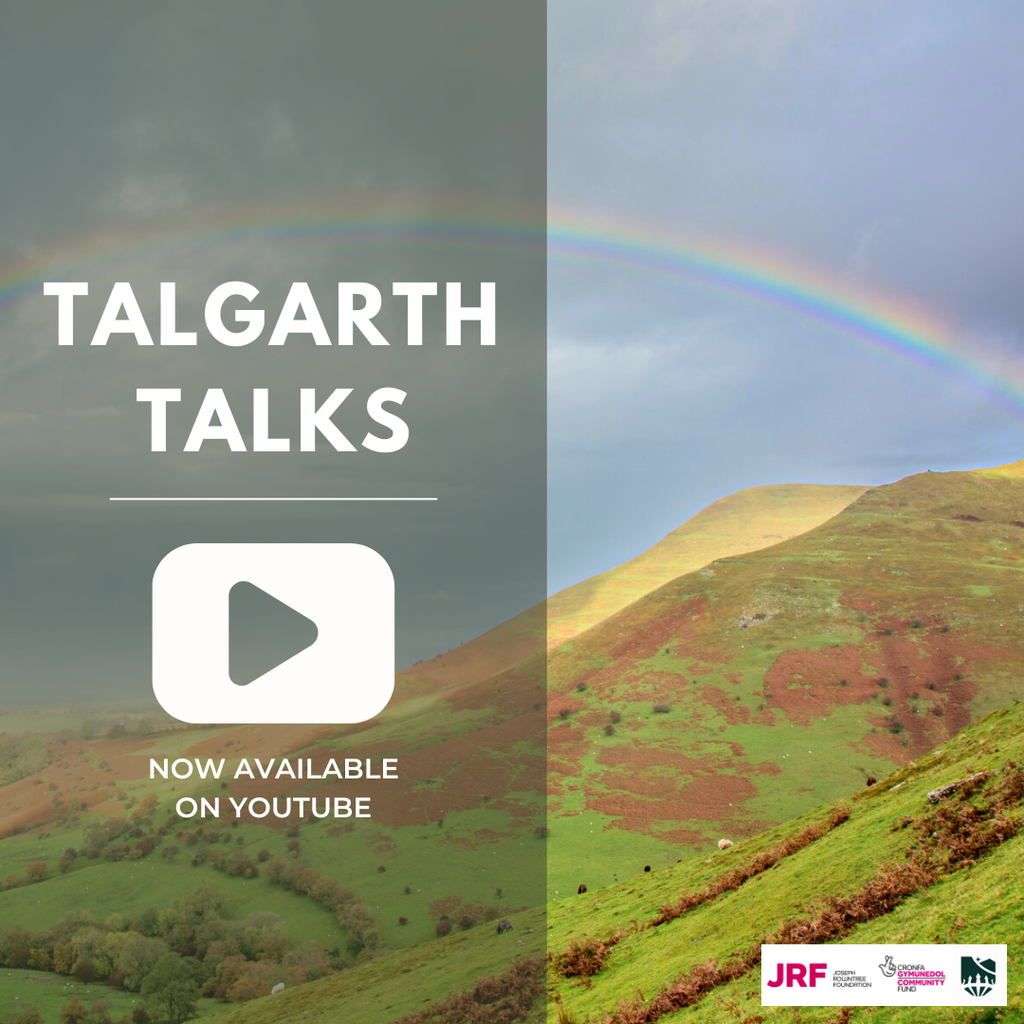Why we must put Future Generations at the heart of all policy thinking – in the interests of us all.
I’m a baby boomer. And I’ve often worried that my generation are not good ancestors. I believe it’s time for my generation to own up and step up.
I’ve been on a journey over the last 20 years to do everything I can to put future generations as the central organising principle of the places I have worked, whether that is government, the public sector or the university sector in Wales. It’s hard – and it’s counter-cultural when decision making has become increasingly short term. My focus has been on the ‘right for humans to live in harmony with Nature’, the necessary principle for human and planetary survival outlined at the first Earth Summit in Rio da Janeiro in 1992.
What does ‘humans living in harmony with nature look like?
It is about living within the environmental limits of this planet of ours, allowing nature to take charge and watching the wider ecosystem services this will deliver. Such as carbon storage, water quality, flood management, landscape quality and connectivity for wildlife to adapt to climate change. This is key to halting the loss of biodiversity and creating a greater number, range and genetic diversity of wildlife.
It’s about us having a greater understanding and appreciation of our interdependence with the other species with whom we share the planet.
It is about ensuring the marine environment is managed sustainably on an ecosystem approach, with an ecologically coherent, representative and well-managed network of marine protected areas.
It was these impulses that led to the development of The Well-being of Future Generations (Wales) Act 2015 – the first act in the world that puts the Brundtland definition of sustainable development: ‘development that meets the needs of the present without compromising the ability of future generations to meet their own needs’. The Act is a legal values framework to achieve 7 goals linked to the UN Sustainable Development Goals in relation to prosperity, health, equality, communities, environment, culture and global action. It also requires 5 ways of working – prevention, collaboration, integration, long termism and participation.
The act redefines prosperity in law as “low carbon, generating decent work and tackling climate change”. This is aligned with a legal definition of resilience which “maintains and enhances a bio diverse natural environment with healthy functioning ecosystems that support social economic and ecological resilience and has the capacity to adapt to change for example climate change”. It was the commitment to the values that underpin this legislation that effectively stopped in its tracks the M4 motorway extension that would have detrimentally affected the Gwent Levels.
But legislation alone is not enough. We must make it sing.
We need a stronger ecological voice to call out the transgressors, putting government and public services in the spotlight. David Attenborough in his 90s and Greta Thunberg in her teens have probably brought more people to understand the loss of nature and the failure of leadership than anyone else in my lifetime.
The Need for Change
The Welsh Government, the Senedd (Welsh Parliament) and most local authorities have all declared climate and/or biodiversity emergencies, and those words now need action commensurate with the commitments. This is the challenge of our time for governments the world over, and they need to take action for the most basic level of human survival.
 To illustrate the point, I want to go back to Maslow’s hierarchy of needs that was first drafted in 1943, during World War II – a time when the whole of society was having to re-evaluate and rebuild itself – when access to the most fundamental elements for human survival – clean air, clean water, food, shelter, health and education were deemed the most important elements to construct a post-war society – and one that was consciously fairer too.
To illustrate the point, I want to go back to Maslow’s hierarchy of needs that was first drafted in 1943, during World War II – a time when the whole of society was having to re-evaluate and rebuild itself – when access to the most fundamental elements for human survival – clean air, clean water, food, shelter, health and education were deemed the most important elements to construct a post-war society – and one that was consciously fairer too.
Are we approaching a similar junction, where we need to re-evaluate and rebuild our system? Is it time to acknowledge current economic systems are not working? That pressure on nature is too great to sustain? The recent pandemic is one answer to that question.
We need a total reset to get back to what matters; to take immediate action to look at our fundamental needs and ensure our access to them. We must take action necessary to sustain this single planet of ours for the future; fundamentally putting the environment and the survival of species at the heart, the very base of what we do.
Understanding Limitations
How can we seize this moment for nature? Donella Meadows, in her revolutionary book Beyond the Limits argued in 1992 that society had gone into overshoot – a state of being beyond limits without knowing it. I used to believe this, but I’m not so sure that it was unwitting. Perhaps governments of the day somewhat cynically passed the responsibility down the line to future generations.
In 1992, Earth Overshoot Day – previously known as Ecological Debt Day (the day in the year when humanity’s resource consumption exceeds the Earth’s capacity to regenerate those resources that year) was mid-October – so already by 1992, we were overusing the Earth’s capacity by 2.5 months; in 2019, it’s July 29th. In 27 years, we have lost a further 2.5 months. In broad terms, that’s nearly a month being notionally lost in each decade. I know it’s only a tool, but it’s a tool that warns us that carrying on with business as usual, means within 70 years there could be no replenishment. But even here there is hope – which is the year where the trajectory was stemmed? Where there was no increase? 2008. The financial crash was good for our longer-term future, and who knows, it might be similar this year. Tackling our consumerism and the unicorn of infinite growth is key for us and future generations.
In Donella Meadow’s subsequent book, Limits to Growth: The 30-Year Update, she promotes the importance of softer tools, namely visioning, networking, truth-telling, learning and loving, in addition to the more rational tools, stating “these five tools … are essential characteristics for any society that hopes to survive over the long term” and that “each of these exists within a network of positive loops. Thus their persistent and consistent application initially by a relatively small group of people would have the potential to produce enormous change – even to challenge the present system, perhaps helping to produce a revolution.”
How do we nurture and spread those tools? Education for leadership and imagination
We need a new kind of leadership where people can come together in thoughtful conversations and act collaboratively; leadership that tells the truth, even when it’s hard, leadership that can involve people everywhere, to make a plan together, with a sense of urgency, and a relentless focus on the radical and practical actions we need – a new version of leadership more capable of tackling the global crisis in front of us.
Such leadership will have certain characteristics. It will:
- be genuinely curious, inquiring and open about where possible solutions might come from – not advocating more of the same – prevention;
- collaborate with other leaders wherever they are – from the grassroots to established positions, young people and elders;
- appreciate the importance of diversity, involving people with different perspectives into respectful dialogue, keeping the concerns of the whole system in view;
- focus squarely on the actions needed for the long-term, sticking with the challenge of working through real tensions and dilemmas; and
- learn fast, in cycles of action, reflection, learning and adaption – integrating all the above.
What interested me here was that the five ways of working mandated in the Wellbeing of Future Generations’ (Wales) Act – prevention, collaboration, integration, long termism and participation are all inherently necessary in new ways of leadership. They are the way we should be making decisions, decisions which factor in long-term consequences.
This is about convening new conversations – bringing leaders together from different professions and sectors to share what they know and what we can do; in Wales all public services are required to deliver on the five ways of working.
Education
We have to educate for new ways of working. At UWTSD we mainstreamed the Wellbeing of Future Generations Act into everything we did. We created a certificate that can be taken by both students and staff to enable them to better participate in thinking more sustainably.
Black Mountains College is embedding the ways of working into the curriculum and linking the goals of the Act with students’ learning journeys through their innovative third year project. It’s exciting. It is an opportunity for students to gain an education through helping Wales deliver the act and then, if they wish, take that experience elsewhere.
The future
I want to close with an excerpt from a paper from the Ecological Citizen, ‘The biodiversity crisis must be placed front and centre’ by Joe Gray and Eileen Crist.
“All told, the coming years are arguably the most significant in human history, with nothing less than the fate of the Earth and humanity at stake. The destruction of life’s variety, complexity, and abundances – the biodiversity crisis – is on course to be a tragedy of scale that ushers in a depauperate and desolate era. Much of the manifold beauty of the current radiation of life with which we share Earth is being rapidly erased. This is an unfolding ecocide that remains an enormous (albeit invisible) injustice to the non-human world and bodes a bleak future for human life and self-understanding. That humanity has yet to comprehend the ethical and existential gravity of the biodiversity crisis reveals the blindsiding bankruptcy of human supremacy – and of the mostly unquestioned ‘right’ of human dominance within, and domination over, the natural world.
There is an ever-more-urgent need to awaken society and policy-makers to life’s devastation, to the ongoing inequity toward the more-than-human world and to the imperative to end biodiversity collapse in our time. The biodiversity crisis must be placed front and centre.”
If we, in Wales, can show through our actions that we understand this imperative, then we are showing others too: another world is possible.
 Jane Davidson is Pro-Vice-Chancellor Emeritus of the University of Wales Trinity St Davids and a former Minister for Environment, Sustainability and Housing in Wales.
Jane Davidson is Pro-Vice-Chancellor Emeritus of the University of Wales Trinity St Davids and a former Minister for Environment, Sustainability and Housing in Wales.
https://janedavidson.wales/about
Her book, #futuregen – lessons from a small country, is published by Chelsea Green: https://janedavidson.wales/book

More like this
-

THE FUTURE IS HEALTHY AND NUTRITIOUS – HERE’S HOW TO MAKE IT HAPPEN
As food security rises on the global agenda, the solution isn’t stockpiling but transforming our…
-

Training for a Changing World
As the challenges facing our natural world grow more complex, the need for skilled, adaptable…
-

Talgarth Talks Community Lectures
Talgarth Talks are monthly public lectures that aim to inspire the ecological imagination, spark fresh…
The BMC Prospectus
Download the Black Mountains College prospectus for an overview of our courses, campuses, and vibrant student life
Visit us
Come along to one of our Discovery Days or Campus Tours to explore our campuses and meet your tutors
